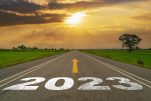Insider has run an article suggesting that Amazon could buy the supermarkets of which a combined Kroger-Albertsons chain would have to divest itself if its proposed merger is approved.
The article says, “Amazon could buy hundreds of grocery stories being divested by Kroger and Albertsons, giving the internet giant’s physical retail efforts a major boost, according to a top research firm.” That firm being Bernstein investment research. Investment Research | Bernstein

Such a possibility is comical. The Insider article states common knowledge: Amazon “has struggled in this part of the retail sector for years. Its $13.7 billion Whole Foods acquisition from 2017 has not gone well, and the grocery chain laid off hundreds of employees recently. Amazon has also shut some Amazon Go and Amazon Fresh locations.”
To someone who is not a brilliant investment analyst, this would suggest that Amazon is realizing that its foray into brick-and-mortar retail grocery is a fiasco and is looking for a bright red sign marked, “EXIT.”
But Bernstein analysts argue the opposite: “Amazon could buy some or all of the divested stores from the planned Kroger and Albertsons merger,” says the Insider article. “The combined companies are expected to divest at least 500 stores. ‘Buying the divested Kroger/Albertsons stores should definitely be on the table at Amazon,’ the analysts wrote. Amazon declined to comment.”
The analysts say, “In theory, Amazon could plug acquired stores into its network, which would (potentially at least) prove less painful and costly than building a distribution and logistics network from scratch.”
Amazon is flopping around like a dying flounder dealing with the mistake that is its brick-and-mortar retail venture. Yet in its desperation, it may well be considering acquisition of divested Kroger-Albertsons stores. Disclosure of the Bernstein report (no doubt approved if not initiated by Amazon) could be an attempt to see if such a measure would stick in the public craw.
It would stick in the public craw. In the first place, the proposed merger has amassed an impressive array of enemies, most recently the 1.3-million-member United Food and Commercial Workers International Union (UFCW). America’s Largest Union of Essential Grocery Workers Announces Opposition to Kroger and Albertsons Merger – The United Food & Commercial Workers International Union | The United Food & Commercial Workers International Union (ufcw.org)
In the second place, a divestiture to Amazon—itself an enormous antitrust action waiting to happen—is unlikely to win the affections of the current Federal Trade Commission (FTC).
FTC chair Lina Khan published an important article in the 2017 Harvard Law & Policy Review criticizing the 2016 Safeway-Albertsons merger, focusing on its ham-handed divestiture to the Haggen supermarket chain, which was ill-prepared to manage the stores it acquired. Kroger, Albertsons, and Lina Khan – Produce Blue Book
It is impossible to believe that Amazon, which cannot even manage its current retail grocery operations, would be able to assimilate 500 divested Kroger-Albertsons stores. If the Amazon chiefs are contemplating such a move, it is a sign of panic rather than foresight.
History suggests that mighty behemoths stumble and fall when overreaching themselves into areas where they have no expertise.



